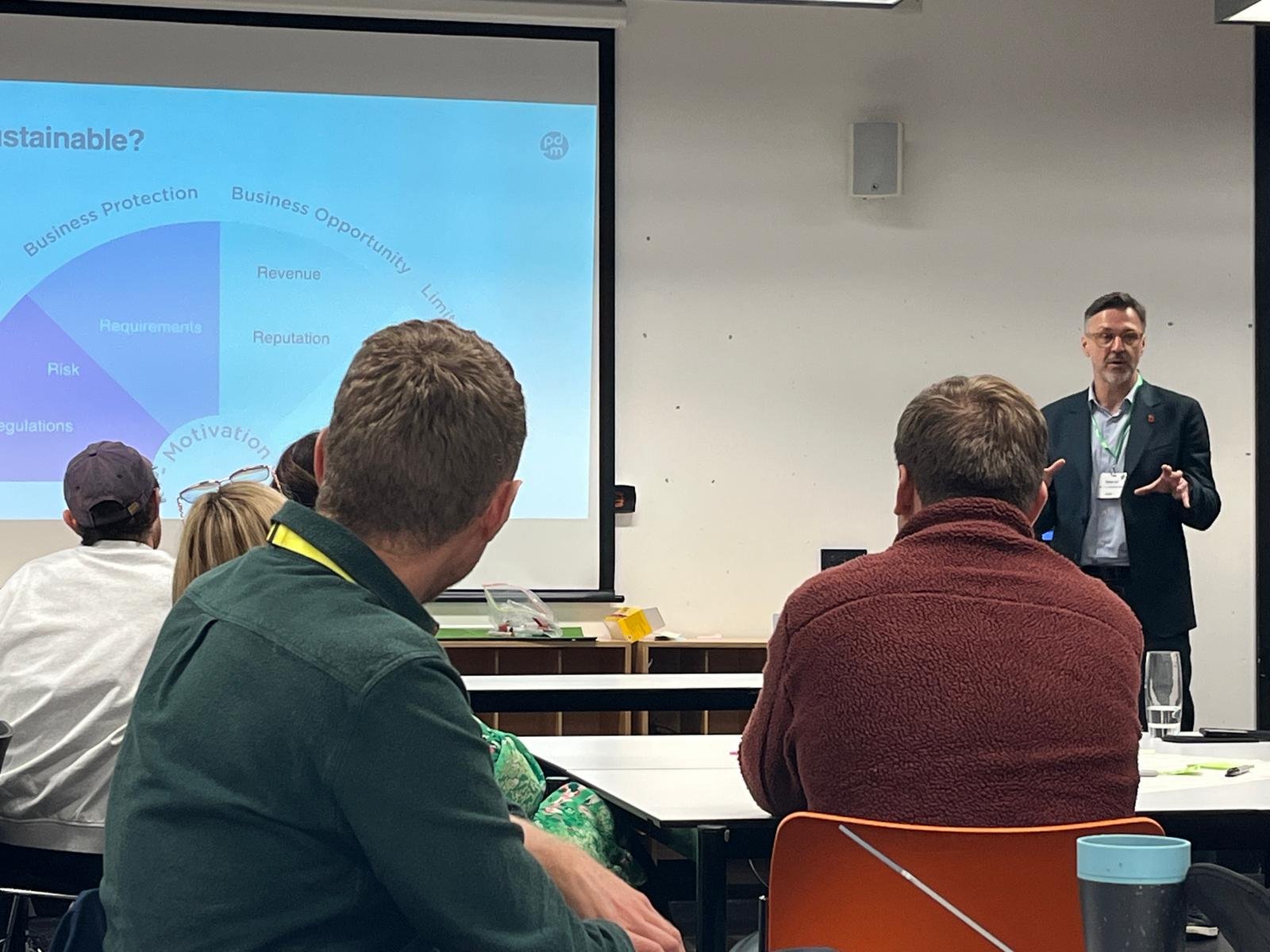The Design for Planet Festival 2024 in Manchester was a landmark event, bringing together innovators and practitioners to redefine sustainable design. The festival was a call to action, encouraging organisations to move beyond conventional practices and embrace design as a strategic force for tackling the planet's pressing challenges.
A Debate on Nature-Positive Outcomes
One of the festival's highlights was the Design Debates: Products vs. Business Models session, where our CEO, Richard Hall, joined a panel of experts to explore how best to achieve sustainability. He championed reducing carbon = reduce cost = increase profitability.
Richard shared tacit knowledge on the stage; which was also streamed live to 5,000 online in 100 countries.
The panel brought together leading voices from both perspectives, offering unique insights into the paths toward a sustainable future:
The Product Approach: Richard, alongside Lisa Henderson and Bernice Pan, championed the potential of well-designed products to deliver immediate, tangible benefits. They argued that a single product, thoughtfully designed, can disrupt markets, inspire innovation, and make a significant impact.
The Business Model Approach: Opposing this view, Efia, Pete Swift, and Simeon Rose emphasised the power of business models in driving systemic change. By embedding nature-positive principles into corporate strategies, business models can foster cultural shifts and create long-term, accumulative benefits.
Key Themes Explored
Speed vs. Scale: Products offer quick, visible wins, while business models enable broader, lasting transformations.
Impact: Both approaches must balance cost with effectiveness in addressing environmental and societal challenges.
Diversity: Inclusive solutions are vital, ensuring sustainability benefits reach diverse communities.
The Path Forward
While there may not be a definitive answer to the debate, the session underscored an essential truth: products and business models are not mutually exclusive. A well-designed product can catalyse broader systemic changes, and innovative business models can amplify the reach and impact of sustainable products.
What do you think is the most effective approach? Share your thoughts on how businesses and innovators can prioritise nature-positive outcomes!
Watch the full video of the Design Debates here.
The festival explored several transformative ideas, here are our top ones:
1. Breaking Down Silos
Richard highlighted how design thinking should influence decision-making at every level of an organisation. This echoes Pd-m’s integrated approach, where design drives innovation across business functions.
2. From Circular to Regenerative Design
Moving beyond circularity, speakers like Sophie Thomas urged designers to embrace regenerative principles and repurpose materials authentically, challenging traditional aesthetics in favor of durability and sustainability.
3. Cross-Disciplinary Innovation
Patrick Grant’s call to rethink profit-first metrics resonated strongly. Pd-m’s use of co-design methodologies fosters collaboration, creating solutions that are not only sustainable but also deeply user-centered.
4. Systems Thinking
Dr. Talia Hussain emphasised the ripple effects of design decisions on broader systems, a concept central to Pd-m’s commitment to evaluating product lifecycles and ecosystem impacts.
Join the Conversation !
The Design for Planet Festival 2024 energised our vision for sustainability. Whether through innovative products or transformative business models, we are committed to designing for a better planet.
Interested in how strategic design can drive sustainability in your organisation? Let’s start the conversation.



